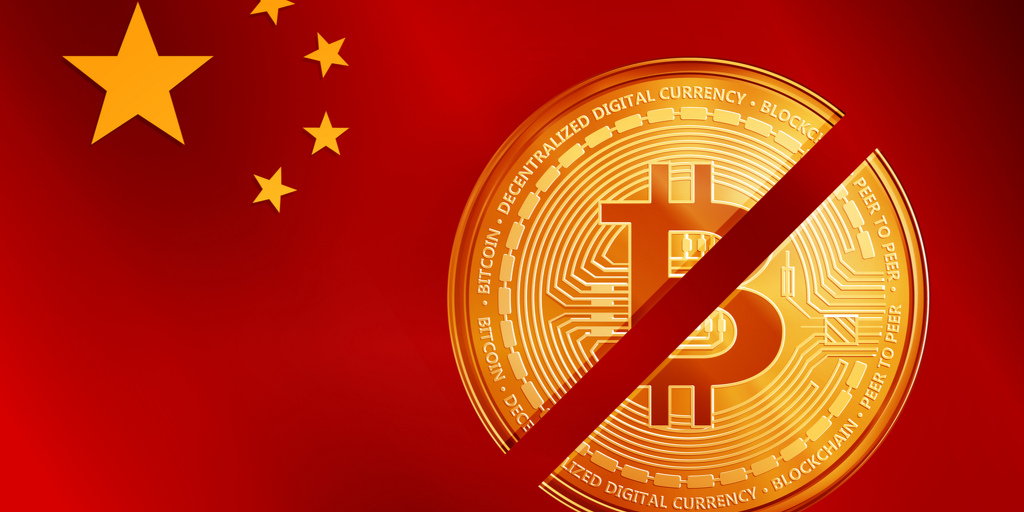
For the longest time, your correspondent was of the view that China would only crack down on speculative crypto trading, and leave the mining sector alone. After all, mining has been an established money-printing machine for both the miners and local governments that collect tax on it.
But China’s carbon neutrality goal, along with zealous Dogecoin trading, have once again raised concerns with the government at an inconvenient time: the CCP’s 100th birthday on July 1.
Crypto became a sensitive topic during the run up to the important celebration. This mysterious, magic Internet money is completely out of the government’s control—and that screams danger.
This week’s da bing looks into the events happening in China last week, from the mining crackdown to the propaganda surrounding the new, centralized, commercial “Chang An Chain.” Yup, the crypto-not-blockchain narrative is doubling down during the birthday period.
Sichuan as the safe haven
By now, it has become clear that most mining activities that eschew clean energy have been shuttered in China. It started in Inner Mongolia and spread to Xinjiang and Yunnan Province. Apparently, someone in Guandong dropped a dime on Yunnan to the government, claiming that it was not getting enough electricity from the province. The government investigated and found the culprit: crypto mining.
There was some confusion about this yesterday, with Forkast.news breaking the story, then other outlets denying it. Even the press in media was confused. However, today a spokesman for the Yunnan Energy department confirmed to a number of legitimate sites, including Sina, that it wants all crypto miners to leave by the end of June. (A number of miners confirmed this in my WeChat crypto group as well.)
A rough translation of the press release: ““By the end of June, all bitcoin mining operations must be scrutinized and cleaned up. Any operation that uses electricity without permission must be stopped.”
A lot of miners have apparently already quit, possibly contributing to a drop in the hashrate on the Bitcoin blockchain noticed yesterday.
Bitcoin’s entire network’s hashrate dropped by 20E. Due to the decrease, Bitcoin has not produced blocks for 1 hour and 45 minutes. pic.twitter.com/kWnUhn9lwB
— Wu Blockchain (@WuBlockchain) June 11, 2021
Sichuan however has been largely left alone. It’s the only province whose government actually called an in-person meeting with leading miners to discuss the situation before pulling the plug. Indeed, so far, no immediate plan to ban mining has been announced.This is likely due to the excessive hydroelectric power produced during the summer. The local government collects a hefty tax when the miners offload the power.
In retrospect, the current ban, which started last month, was hardly a surprise. What was surprising was how quickly everything was shut down. Usually the central government issues its “orders” and local governments then gauge the pros and cons and then enact the order only if there’s a local benefit. However, this time, local governments eagerly and immediately complied.
It turns out that the CCP centennial birthday is a good time to show loyalty to the party.
At its core, Chinese politicians are doing what American politicians such as Elizabeth Warren do. To the uneducated, cracking down on crypto seems to be an easy way to do something good for society. You’re saving the environment, and cracking down on all that unlawful Internet money.

The survivors
In China, there are large mining operations in Xinjiang and Sichuan and smaller ones in Yunnan. The recent crackdown seemed to mainly target the big mining operations. They will have a hard time coming back to life because these are operationally heavy farms that cannot be simply shut down and restarted like a toaster oven.
The smallers ones might have a better prognosis. They could re-start their machines when mining becomes less of a concern for the government. Having such flexibility is perhaps the key success factor for any miners that want to operate in China in the future.
Chain ‘independence’ with Chinese characteristics
But even as the government cracked down on miners, it promoted blockchains. On June 10th, the government, in cahoots with a dozen prominent businesses, gathered to celebrate the launch of “Chang An Chain.” (Chang An was the capital of China during the Tang dynasty.)
The chain is an enterprise blockchain that is both “independent and controllable,” two characteristics that are close to CCP’s heart. “Independent” is important because China wants to rely less on foreign technology. (That’s why Huawei’s new operating system, HongMeng, is touted as a national victory—now China is not solely dependent on iOS or Android. “Controllable” matters because the word means that the government can monitor both on-chain and off-chain activities.
Chang An Chain announced it will integrate with China’s digital yuan as part of the 2022 Winter Olympics.
One might ask: how is this chain different from another China-sanctioned business chain, BSN? The answer is it’s not, really. Both chains were launched by a consortium of government and large enterprises. The difference is that while BSN approaches blockchain from a cloud-infrastructure perspective (to use BSN, you need to buy cloud storage) Chang An targets the hardware industry. (It’s lead in the consortium is a hardware company known for producing chips.)
A birthday surprise
Yet, despite the crackdown, the national crypto market seems to be reacting less and less emotionally. In the old days, rumors of a mining crackdown in China would obliterate the price of BTC.
Now that a crack down actually is happening and bitcoin’s hashrate is tanking, the market has been mostly shrugging it off.
That’s because everyone is coming to grips with China FUD, even while the country itself seems to be slowly banning crypto. Could crypto in China bounce back after CCP’s birthday celebration? Maybe–we will have to wait until July to find out.
In the meantime, most of the miners won’t be on hand to celebrate the CCP’s big birthday bash. They’re looking for new homes abroad.
Do you know?

“躺平” or “laying flat,” is hottest term on China’s internet. It describes young people’s preference to lay flat on a couch or floor rather than working hard to make a living. In crypto, the term is also used to describe yield farming. After all, why work so hard to trade when you can lay flat and collect yields?





















